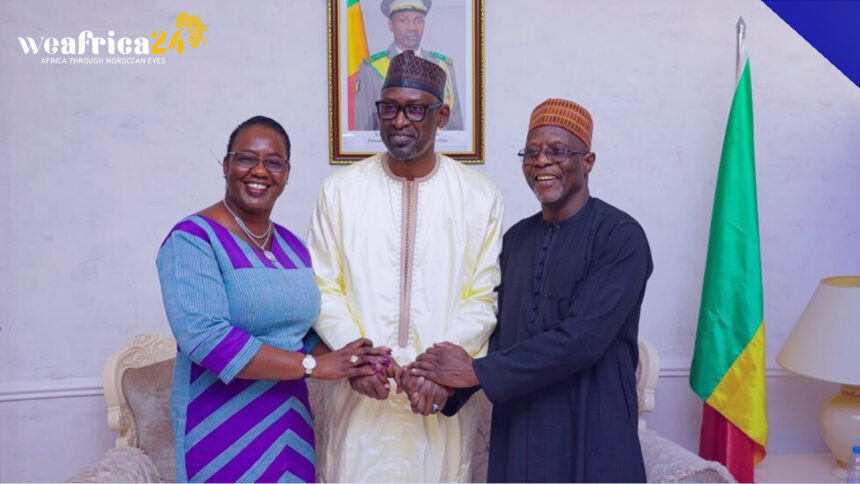The Foreign Ministers of the Sahel States Alliance (AES) are convening in Bamako for the “operationalization” of the coalition created on September 16, 2023, by Mali, Niger, and Burkina Faso—three Sahelian countries whose current authorities emerged from military coups.
Burkinabe Minister Olivia Ragnaghnèwendé Rouamba, her Nigerien counterpart Bakary Yaou Sangaré, and their Malian host Abdoulaye Diop are meeting on Thursday, November 30, to elevate this alliance to a political and diplomatic dimension.
Originally conceived as a defense pact, the AES saw Mali, Niger, and Burkina Faso decide to pool their military resources to combat rebel or jihadist groups, as observed recently in Mali on a small scale. However, the three countries aim to go further and establish a genuine economic and political union.
On the economic front, the three nations announced last weekend their intention to enhance trade, jointly undertake energy and industrial projects, create an investment bank, and even establish a common airline. No specific timeline has been set for these ambitious projects.
Common Political and Diplomatic Frameworks
The foreign ministers of the three countries are, according to a statement from the Malian side, deliberating on “the adoption of additional protocols,” “the institutional and legal bodies to establish,” and “the definition of political measures and diplomatic coordination.” These discussions aim to position the AES as a regional organization playing a multifaceted role.
It is essential to note that Mali, Niger, and Burkina Faso have been suspended from ECOWAS (Economic Community of West African States) institutions since their respective military coups. While they remain members, they no longer participate in decision-making processes. This situation is expected to persist until they hold elections and return to constitutional order. Moreover, Niger is still subject to economic sanctions imposed by ECOWAS, against which Niamey has initiated a legal process. The decision expected on Thursday has been postponed.
Alternative to ECOWAS
In this context, the ongoing “operationalization” of the Sahel States Alliance appears to be the creation of an alternative to ECOWAS. The emergence of this regional organization, albeit more restricted, aligns with the current leadership of these three countries. Their leaders contend that ECOWAS is unjust, does not comprehend the interests of the populations, and is manipulated by France.
In his opening speech on Thursday, Malian Foreign Minister Abdoulaye Diop emphasized the objectives of the AES: “total emancipation, full sovereignty, and no longer accepting any dictate.” This is a direct reference to ECOWAS and, of course, France.







